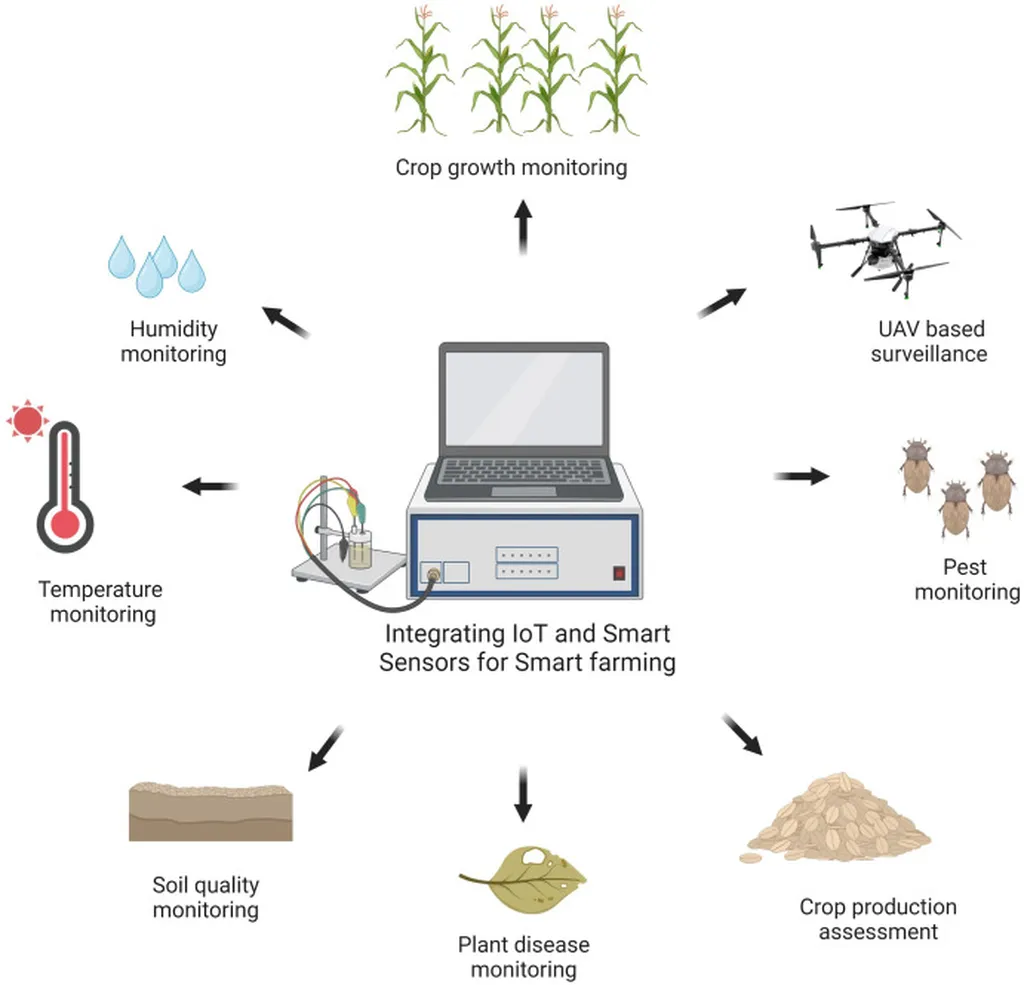In the quest for sustainable agriculture, a groundbreaking study published in *Sensors* is bridging the gap between biological and technological innovations, offering a promising pathway to smarter, more resilient farming practices. The research, led by Younes Rezaee Danesh from the Department of Plant Protection at Van Yuzuncu Yil University in Türkiye, explores the synergy between beneficial microbes and sensor technologies, paving the way for a new era of precision agriculture.
At the heart of this research lies the integration of microbial bioinoculants—beneficial bacteria and fungi that enhance soil fertility and plant health—with advanced sensor networks. These sensors, which monitor soil moisture, nutrient levels, and environmental conditions, provide real-time data that farmers can use to optimize crop management. The combination of these two technologies has shown remarkable results, with field trials demonstrating yield increases of 10–25% and reductions in agrochemical inputs by up to 30% under optimized conditions.
“The integration of microbial bioinoculants with sensor technologies represents a transformative advancement toward sustainable smart agriculture,” says Danesh. This approach not only improves crop productivity but also enhances resource-use efficiency and environmental resilience, reducing the reliance on chemical fertilizers and pesticides.
The study proposes an integrative Microbe–Sensor Closed Loop (MSCL) framework, where microbial activity and sensor feedback interact dynamically to optimize inputs, monitor plant-soil interactions, and sustain productivity. This closed-loop system enables precision fertilization, stress diagnostics, and early detection of nutrient or pathogen imbalances, offering farmers a more holistic and data-driven approach to crop management.
The commercial implications of this research are substantial. By reducing the need for chemical inputs, farmers can lower production costs while also minimizing environmental impact. The use of sensor technologies allows for more precise and efficient use of resources, leading to higher yields and better-quality crops. Additionally, the early detection of nutrient or pathogen imbalances can prevent crop losses, further enhancing profitability.
However, the path to widespread adoption is not without challenges. Variable field performance of inoculants, high sensor costs, and limited interoperability of data systems are significant barriers. Addressing these issues will require standardization, cross-disciplinary collaboration, and comprehensive farmer training.
As the agriculture sector continues to evolve, the integration of biological and technological innovations holds immense potential. This research not only provides a clear pathway toward resilient, resource-efficient, and ecologically sound food production but also sets the stage for future developments in the field. By harnessing the power of beneficial microbes and sensor technologies, farmers can achieve sustainable productivity while safeguarding the environment for future generations.

